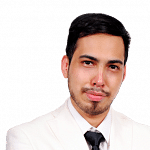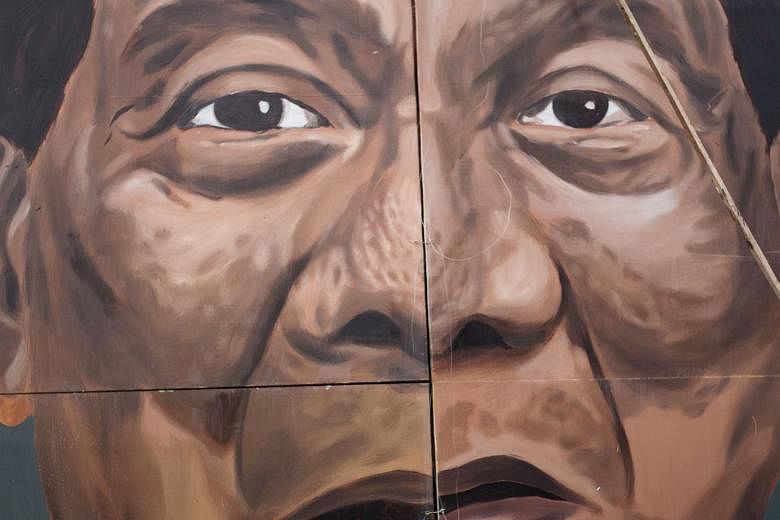The year 2017 was a particularly auspicious one for Philippine President Rodrigo Duterte in many ways.
The controversial Filipino leader, who was elected just a year ago (mid-2016), leveraged Manila's turn as the Asean chair to project himself as a regional power broker.
He enthusiastically hobnobbed with global superpowers, proudly overseeing multilateral responses to brewing conflicts from the South China Sea to the Korean peninsula.
Despite heavy criticism of his human rights record, he managed to deepen personal relations with world leaders, including United States President Donald Trump, while maintaining high approval ratings at home.
Yet, the tough-talking Philippine President faces major challenges in the coming years, both on the domestic and international fronts.
It must be said that Mr Duterte's greatest achievement this year was his uncanny ability to translate outright disasters into political dividends.
For instance, the siege of Marawi city by ISIS -affiliated groups called into question what were supposed to be his special strengths as a leader. After all, Mr Duterte's ascent to presidency was partly driven by his promise to bring about peace and prosperity to his home island.
Over the years, he has consistently portrayed himself not only as a capable "law-and-order" leader, but also as a sincere peacemaker with deep ethno-religious ties to both the Christian majority as well as the Muslim "Moro" minority in the country.

Yet, ironically, under the leadership of the country's first president from the conflict-ridden island of Mindanao, the Philippines found itself fighting to break the grip of the vicious Islamic State in Iraq and Syria terrorist group over a part of its territory.
Far from undermining his authority, however, the crisis in Marawi provided Mr Duterte the perfect pretext to experiment with draconian emergency measures.
He immediately declared martial law across Mindanao with no clear deadline as to when it might be lifted. It proved popular. He has threatened to extend it across the country if and when he deems it necessary. Despite the shock setback in his own backyard, Mr Duterte managed to turn chaos into a ladder for further political consolidation.
Meanwhile, he also leveraged global concerns over the spectre of the ISIS in South-east Asia to solicit international support. Not only traditional partners such as the United States and Australia, but also regional powers such as China and Russia provided direct military assistance to the Philippines during the months-long siege of Marawi.
Expanded counter-terrorism cooperation also served as a springboard to repair frayed ties with America, with the Trump administration deliberately toning down its criticisms of Mr Duterte's bloody drug war in order to focus on the ISIS threat.
By emphasising the threat of transnational terrorism, Mr Duterte, as the chairman of Asean, effectively sidelined earlier concerns over human rights and democracy issues in the Philippines and the broader South-east Asian region.
He displayed a similar level of political adaptability vis-a-vis domestic political shocks, particularly the growing opposition to his scorched-earth campaign against illegal drugs.
Mr Duterte was forced to suspend his violent campaign on two occasions, particularly after the death of South Korean businessman Jee Ick Joo (in January) and teenager Kian de los Santos (in August), both allegedly at the hands of Philippine police forces.
Yet, as soon as public backlash subsided, he resumed the anti-drug campaign without suffering any significant drop in his still-high (80 per cent) approval ratings. No officials were held to account.
Surveys suggest that a majority of Filipinos disapprove of extrajudicial killings, yet seven out of 10 Filipinos still support Mr Duterte's drug war. They may not appreciate his methods, but they applaud his political will.
Despite Beijing's continued reclamation activities in Philippines-claimed areas in the South China Sea, the Philippine President has also managed to keep critics of his China policy at bay.
If anything, according to a recent Pew survey, he has gradually convinced a growing number of Filipinos to support his decision to soft-pedal on territorial disputes with China in favour of economic benefits from the Asian powerhouse.
Since Mr Duterte's ascent to power, the number of Filipinos who favour closer economic relations with China has increased from 43 per cent to 67 per cent.
Meanwhile, the number of those who favour confrontation with China over territorial disputes dropped from around 41 per cent to only 28 per cent.
Nonetheless, Mr Duterte faces a tough year ahead.
On the domestic front, he will have to address public clamour for more effective governance.
Inflation control, poverty alleviation, better public infrastructure and employment generation - these are the most urgent issues in the eyes of Filipinos.
He will also have to transcend his almost single-minded obsession with the drug war in favour of a more diversified national economic agenda. Otherwise, he risks alienating not only his passionate base, which clamours for an overhaul of the country's broken political system and elite-dominated economy, but also the silent majority, which awaits actual results on the ground beyond tough talk alone.
One must also keep in mind the fact that President Duterte, who is limited to six years in office, is still in his political honeymoon period, which usually lasts two to three years. But as years go by, the public is expected to adopt an increasingly critical view of his performance, and have less patience for empty rhetoric and incompetence. His supporters seek nothing short of a full transformation of the Philippines into a vibrant economy, which can deliver basic public services and ensure law and order beyond the mere crackdown on illegal drugs.
Internationally, any major clashes or incidents in disputed areas could also force him to abandon his rapprochement with China, which is yet to show any sign of constraint in its maritime ambitions.
The Philippines is also yet to benefit from any major big-ticket Chinese investments despite back-to-back announcements of a "golden age" in bilateral relations.
If China were to build structures on the Philippine-claimed Scarborough Shoal, or forcibly squeeze out Philippine troops and personnel from disputed land features, it will likely provoke a major backlash among the Filipino public and defence establishment.
More broadly, deepening Sino-American rivalry in the region will also make it increasingly difficult for Mr Duterte to play one superpower against the other. He had a good start but as time goes by, the Philippine strongman may discover the limits of his power in shaping his country's destiny by pure personal whim.
- The writer is a non-resident fellow at Stratbase ADR Institute and author of The Rise of Duterte: A Populist Revolt Against Elite Democracy.
- S.E.A. View is a weekly column on South-east Asian affairs.


